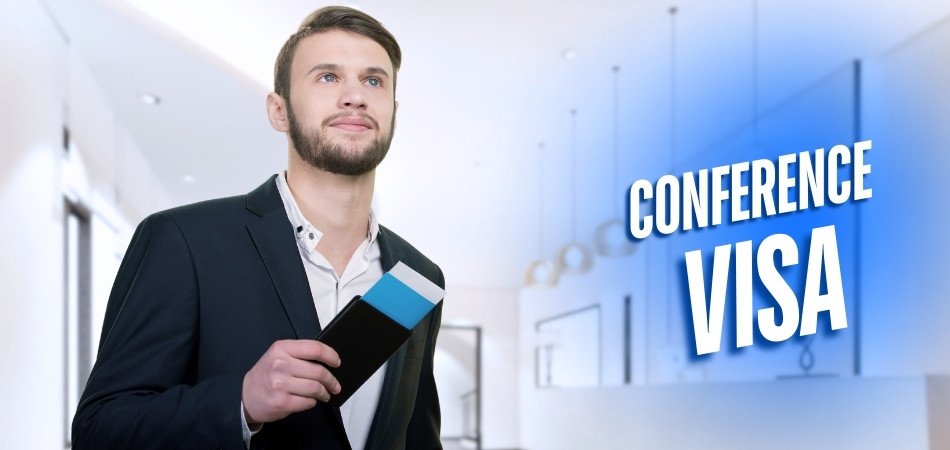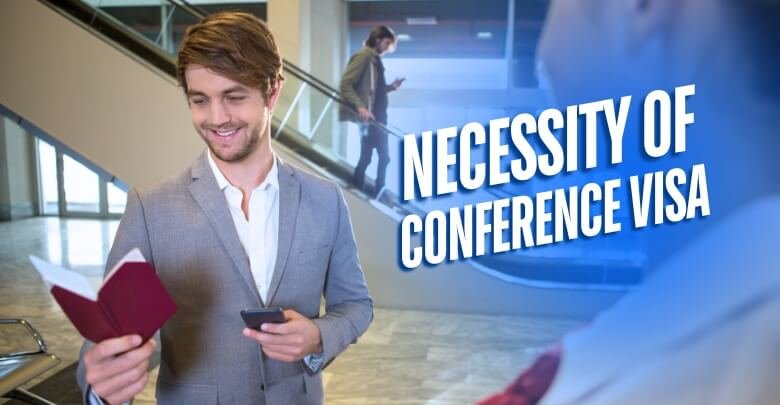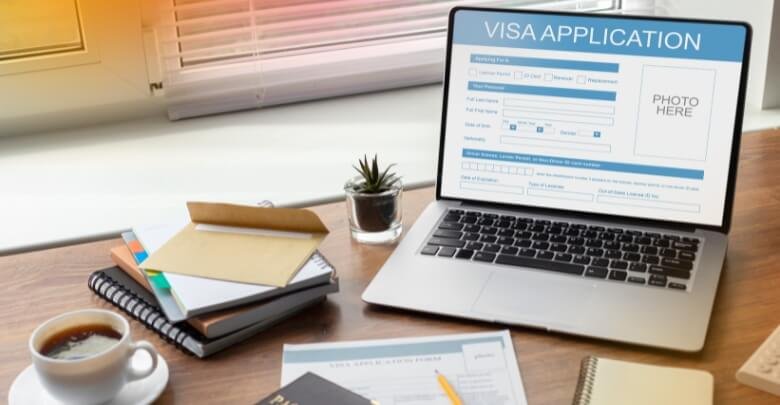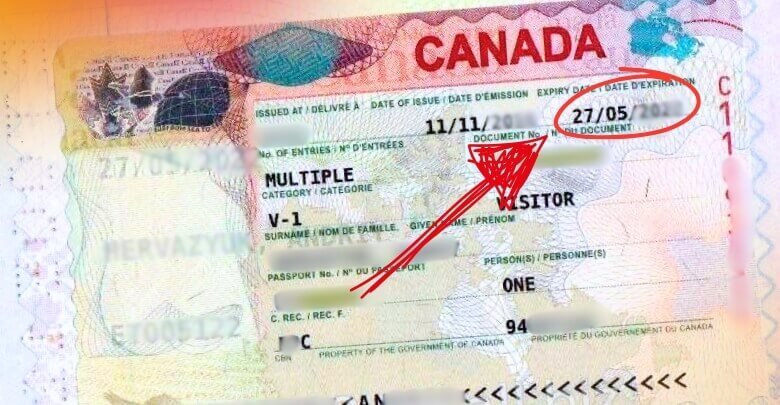Attending an international conference can be a rewarding experience, offering opportunities for networking, learning, and career advancement. However, before you can participate, there are often logistical hurdles to get through, such as securing a visa. Now the question is: What is conference visa?
Conference visa is a travel permit issued by the host country, allowing foreign nationals to participate in conferences, seminars, workshops, and similar events for a limited time. Designed to encourage international collaboration and knowledge sharing, this visa is a vital tool for global professionals.
Curious about the process and requirements? Keep reading to find out the essentials of securing your conference visa with ease.
Is a Visa Important for Attending an International Conference?
A visa is usually a crucial requirement for attending an international conference. It allows individuals to legally enter and stay in a foreign country for the duration of the event. Each country has its visa policies, and the type of visa needed can depend on the attendee’s nationality, the conference location, and the duration of stay.
In some cases, conference organizers may assist with visa applications by providing invitation letters or other documents necessary to support the application. A visa application can take weeks or even months to process, depending on the country and the applicant’s circumstances.
For those planning to attend an international conference, you have to verify the visa requirements of the host country and allow adequate time for the application process to ensure smooth entry and participation.
What is Conference Visa?
A conference visa lets people travel to another country to attend professional events like seminars or workshops. This visa is a legal requirement for foreigners joining conferences in many nations around the world. It helps travelers enter the country smoothly and avoid unnecessary issues at immigration checkpoints. Conference visas are essential for anyone looking to participate in global events for learning and networking.

Countries issue conference visas to support international collaboration and knowledge-sharing among professionals, researchers, and industry experts. These visas are typically short-term and apply only to specific events in the host country. Getting one allows you to focus on the event without worrying about travel restrictions or legal problems. Always check the visa requirements early to avoid delays or missed opportunities when planning your trip.
Whether you’re presenting research or exploring career opportunities, knowing these purposes is crucial for planning your travel effectively.
Attending Conferences
Participating in professional or academic conferences promotes learning, networking, and sharing ideas with like-minded individuals. These events provide an environment where professionals can stay updated on industry trends. With a conference visa, attendees can explore innovative solutions to global challenges.
Conferences offer a great platform for exchanging diverse perspectives and gaining exposure to groundbreaking research or projects. Whether academic or industrial, attending boosts professional growth. A conference visa ensures you have the legal means to be part of these transformative events.
Presenting Research or Work
Researchers and academics use conferences to showcase their findings, earning recognition while advancing their fields. This platform allows professionals to connect with peers interested in their work. A conference visa is essential for those presenting papers or discussing projects internationally.
Presenting at such events opens doors to funding opportunities and feedback that refine ideas. It also highlights contributors’ roles in driving innovation. This visa helps presenters focus on delivering impactful insights rather than worrying about entry restrictions.
Participating in Panel Discussions
Serving as a panelist involves sharing expertise and debating key issues in a field. Panel discussions provide insights and encourage meaningful conversations. A conference visa ensures smooth access to participate as a speaker or panel member.
These sessions encourage collaboration, facilitating connections between different sectors or regions. They also offer valuable exposure to industry leaders and decision-makers. A visa clears the path for impactful contributions to such high-value interactions.
Conducting Workshops
Workshops offer hands-on training and educational opportunities, and many professionals attend conferences to lead these sessions. They encourage the spread of specialized knowledge and practical skills. Conference visas facilitate international educators in sharing expertise through engaging workshops.
Leading a workshop helps professionals build their reputation while contributing to their field. Such opportunities create lasting impressions among participants. A valid visa ensures nothing disrupts these planned knowledge-sharing activities.
Networking and Collaboration
Networking at conferences can result in partnerships and collaborations that drive innovation and business growth. Building relationships with peers and industry leaders is invaluable. A conference visa allows attendees to connect freely without worrying about legalities.
These connections often lead to long-term professional opportunities and career advancements. Collaborations formed at conferences have led to innovative discoveries in various fields. The visa provides the necessary access to these crucial networking moments.
Exhibiting Products or Services
Businesses showcase their products or services at conferences, expos, or trade shows to attract clients or collaborators. Such events offer excellent opportunities for visibility and growth. A conference visa is vital for exhibitors to promote their innovations globally.
Exhibitors benefit from direct engagement with potential buyers or investors, boosting their reach. These interactions help businesses understand market needs better. The visa ensures seamless participation, letting companies focus on building their brand.
Continuing Education
Professionals often attend sessions and workshops at conferences for ongoing education and certification. This enriches their skill set and improves career prospects. A conference visa is essential to access these continuing education opportunities abroad.
Through such sessions, professionals gain new knowledge that aligns with industry standards and trends. Certifications earned help individuals maintain their credentials and stay competitive. A visa ensures no hurdles prevent accessing these essential professional resources.
Exploring Career Opportunities
Conferences often host career fairs, offering attendees access to potential employers and job openings. This can be a game-changer for career seekers. A conference visa is a gateway for exploring these international career opportunities.
Engaging directly with employers allows individuals to showcase their skills and interests. These interactions often lead to interviews or employment offers. Having a visa ensures participants will not miss out on these pivotal moments.
Different Types of Conference Visas
Conference visas are essential for attending professional events worldwide, but not all visas are the same. Different types cater to specific purposes, ensuring the right fit for your travel needs. You can simplify the application process and choose the right option by knowing the below categories.

General Conference Visa
A general conference visa allows attendees to participate in professional events, including seminars and academic discussions. It covers those attending workshops, ensuring they can fully engage. Applicants must provide event invitations and proof of professional involvement. This visa is perfect for general participation without specific roles.
Speaker or Panelist Visa
This visa is for individuals presenting at events or serving as panelists in discussions. It requires proof of speaking engagements or schedules. Panelists often use it to share expertise and interact with global audiences. This type emphasizes the applicant’s active contribution to the event.
Research Presentation Visa
Researchers presenting papers or findings at conferences apply for this visa. It requires detailed documentation about the research and the event. This visa facilitates international knowledge sharing and recognition of academic achievements. It suits academics aiming to make impactful contributions to their fields.
Workshop Conductor Visa
This visa allows professionals to lead training sessions or workshops during conferences. Applicants must provide workshop details and objectives. It supports educators or trainers sharing specialized skills with attendees. Organizers often sponsor these visas to bring in industry leaders.
Business Exhibitor Visa
Businesses showcasing products or services at expos or trade shows need this visa. Proof of exhibitor status and event participation is essential. It helps organizations market themselves and connect with potential clients. This visa is ideal for industry-driven events.
Continuing Education Visa
Professionals attending conferences for certifications or continuing education apply for this type. It covers sessions offering credit for professional growth. Supporting documents often include proof of registration and course outlines. This visa supports career advancement and skills development.
Why Do You Need a Conference Visa to Attend a Conference?
Attending a conference abroad often requires more than booking flights and accommodations—you need the right visa. A conference visa ensures you meet legal entry requirements while focusing on your event goals. Below are key reasons why having a conference visa is essential.

Compliance with Legal Entry Requirements
- A conference visa ensures you follow the host country’s immigration rules for attending professional events or gatherings.
- Immigration authorities often require specific documentation proving the purpose of your visit to allow entry.
- Without the right visa, you risk being denied entry at the border or facing penalties.
Professional Recognition and Credentials
- Presenting a visa demonstrates you are officially recognized as an attendee, speaker, or contributor to the event.
- Organizers often coordinate with visa holders to streamline access to sessions and networking events.
- It highlights your professional commitment and seriousness in attending the conference.
Smooth Travel and Immigration Process
- A conference visa helps avoid delays or scrutiny at customs by confirming the legitimacy of your travel plans.
- Immigration officers may question the purpose of your visit, and a visa eliminates ambiguity.
- Proper documentation simplifies airport procedures, allowing a stress-free travel experience.
Access to Exclusive Opportunities
- Many conferences restrict access to registered participants, and visas often validate your participation status.
- Networking events, workshops, and panel discussions may require proof of attendee or speaker status.
- A visa ensures you don’t miss out on important sessions due to administrative hurdles.
Ensures Event Participation
- Event organizers often require visa confirmation to allocate speaking slots or workshop facilitation roles.
- Missing the visa deadline could result in losing the opportunity to present or attend.
- A valid visa ensures you can focus fully on your participation rather than administrative worries.
Encourages International Collaboration
- A conference visa enables professionals to connect with peers and collaborate on research or projects.
- It allows unhindered access to networking sessions, enhancing professional relationships.
- Collaborations formed at these events often lead to new opportunities, made possible through a valid visa.
Essential Documents Required for Conference Visa Application- What Are They?
Applying for a conference visa requires careful preparation and gathering specific documents to support your application. These documents prove the purpose of your visit and ensure smooth processing. Below are the key documents you will need for a successful application.
- Passport: A valid passport is necessary to verify your identity and citizenship. Ensure it has enough blank pages for visa stamps.
- Conference Invitation Letter: An official invitation letter confirms your participation in the conference. This document usually details event dates, purpose, and location.
- Visa Application Form: Complete the visa application form accurately, following the host country’s guidelines. Double-check the form for errors before submission.
- Proof of Accommodation: Submit evidence of your hotel booking or stay arrangements during the event. This reassures authorities about your planned lodging details.
- Travel Itinerary: Include a detailed itinerary with flight details, including return tickets. This document assures authorities of your planned exit from the country.
- Proof of Financial Means: Provide bank statements or sponsorship letters to demonstrate your ability to fund the trip. Authorities need assurance you can manage expenses.
- Photographs: Attach recent passport-sized photographs meeting specific requirements. These photos must match the standards set by the host country.
- Work or Academic Credentials: Submit documents proving your professional or academic role related to the conference. These credentials show your legitimate purpose for attending.
- Proof of Registration: Include the event registration confirmation or receipt. It shows you are an official participant and not traveling for other reasons.
- Health Insurance: Some countries require proof of travel health insurance. This covers potential medical expenses during your stay for added security.
How to Apply for Conference Visa to Attend International Conference?
Applying for a conference visa may seem challenging, but breaking it into manageable steps simplifies the process. Each step involves gathering essential information and completing specific tasks. A smooth application experience depends on knowing the requirements and planning ahead. Below is a step-by-step guide to help you through the process.

1. Research the Host Country’s Visa Requirements
Start by visiting the official website of the embassy or consulate of the country you plan to visit. Read through their visa section carefully, noting the required documents and eligibility criteria. Check if the application process is online, in person, or through a visa agency. Avoiding delays or rejections is possible by understanding the requirements.
2. Gather the Required Documents
Prepare all the necessary documents, such as your passport, invitation letter, and proof of financial means. Ensure that each document meets the specific guidelines set by the host country. Double-check for validity, such as passport expiration dates or official stamps on supporting documents. Organizing everything beforehand saves you time and stress during submission.
3. Complete the Visa Application Form
Fill out the visa application form with accurate details that match your official documents. Any discrepancies may result in delays or even rejection of your application. Some forms can be submitted online, while others require physical copies to be delivered. Review your application thoroughly before submitting it to avoid errors.
4. Schedule and Attend the Visa Appointment
Book an appointment at the nearest embassy, consulate, or visa application center, depending on the process. Arrive on time with all the required documents, including your application form and payment proof. During the interview, answer questions clearly about your purpose for attending the conference. Pay any associated fees as instructed by the visa office.
5. Track Your Visa Application Status
Many visa application centers provide tracking services to keep you updated on your application progress. Regularly check the status to ensure there are no unexpected issues or delays. Be prepared to provide additional documents if requested during the review process. Staying informed helps you act quickly if any concerns arise.
6. Receive Your Visa and Prepare for Travel
Once your visa is approved, review it carefully for accuracy regarding dates and permissions. Any errors must be reported to the visa office immediately for corrections. Keep your visa and supporting documents accessible for immigration checks during travel. Now, focus on finalizing travel arrangements and enjoying the upcoming conference.
Whether you are planning to attend international conferences in USA, Canada, or any other country, you should plan properly. For example, by familiarizing yourself with the HR conference visa process in Canada, you can ensure that your application meets all the host country’s requirements and avoids unnecessary complications. With everything in order, you can focus on the exciting opportunities the conference brings!
Common Mistakes to Avoid While Applying for a Conference Visa
Applying for a conference visa can be simple if done correctly, but small mistakes can cause big delays. Knowing what to avoid can save you time and unnecessary stress. Below are common pitfalls and tips to ensure a smooth visa application process.
- Submitting Incomplete Documents: Missing required documents like an invitation letter or proof of funds can lead to rejection. Always double-check the list of required materials.
- Providing Inaccurate Information: Errors in your application form, such as mismatched passport details, can raise red flags. Review every detail carefully before submission.
- Ignoring Application Deadlines: Applying too close to your travel date can cause unnecessary stress. Submit your application early to allow time for processing.
- Overlooking Visa-Specific Requirements: Each country may have unique rules, like specific photograph sizes or notarized letters. Read the requirements thoroughly to avoid issues.
- Skipping Proof of Financial Stability: Failure to provide clear evidence of funds can cause rejection. Include updated bank statements or sponsor letters as proof.
- Not Verifying Passport Validity: Using a passport nearing expiration may result in immediate application denial. Ensure your passport is valid for at least six months.
- Failing to Attend the Interview: Missing your visa appointment without proper notice can delay your application. Arrive on time with all necessary documents.
What is the Validity Period of a Conference Visa?
The validity of a conference visa usually covers the event’s duration, plus additional days for travel and lodging arrangements. Depending on the host country and conference specifics, it can range from a few days to several weeks. Some countries may allow extended validity for additional purposes, like post-conference networking or tourism. Checking the exact regulations of the destination country ensures proper planning and avoids complications.

Event Duration
The primary factor determining validity is the length of the conference itself, including its official start and end dates. Countries typically provide a visa duration that matches the event’s schedule. Additional days are often granted to accommodate pre-event preparation or post-event travel. Always confirm these details when receiving your invitation letter or itinerary.
Host Country Regulations
Each country sets its own rules for visa validity, influenced by its immigration policies and event significance. Some nations are stricter, offering validity only for the exact event days. Others may extend it for additional professional or personal purposes. Research the specific requirements of your destination to avoid surprises.
Travel and Accommodation Time
Many visas include buffer days for attendees to settle in before and after the conference. These extra days help manage jet lag and logistics. However, the number of buffer days varies depending on the country’s policy. Clarify this during the application process to align with your plans.
Purpose of Visit
Visas for speakers, panelists, or exhibitors may have extended validity due to their added responsibilities at the event. Participants with multiple roles might receive a longer stay to fulfil their commitments. This flexibility supports the smooth execution of various event-related tasks. When applying for a conference visa, ensure your application reflects your specific purpose for the most effective outcome.
Additional Documentation Provided
The submission of extra documentation, like proof of extended travel plans, can sometimes extend the validity period. Some countries may consider detailed itineraries or post-conference activities. Proper documentation shows clear intentions and helps secure a more accommodating visa duration. Always check if such extensions are permitted under the visa type.
How Do You Make the Most Out of the Conference Visa?
Making the most of your conference visa isn’t just about attending the scheduled sessions. It’s an opportunity to expand your horizons both professionally and personally. Here are some tips to help you fully take advantage of your time abroad.
- Plan Additional Networking Activities: Connect with industry professionals outside the conference to deepen relationships. This proactive step can lead to valuable collaborations and future opportunities.
- Explore Local Culture: Set aside time to visit local attractions and immerse yourself in the culture. Experiencing new environments can provide fresh perspectives and inspiration.
- Attend Diverse Workshops and Seminars: Participate in sessions beyond your main area of expertise to broaden your knowledge. Exposure to different topics can spark innovative ideas.
- Follow Up with New Contacts: After meeting people, send personalized messages to maintain the connection. Keeping in touch ensures you stay on their radar for future projects.
- Document Your Experience: Keep a journal or blog about your trip to reflect and share insights. This helps you process what you’ve learned and benefits others in your network.
- Utilize Social Media Platforms: Share your experiences online to increase professional visibility. Engaging with online communities can further expand your network.
FAQs about What is Conference Visa?
A conference visa allows individuals to travel internationally to attend professional events like conferences, seminars, and workshops. Taking the time to learn the details can help you manage the process effectively. Below are some relevant FAQs to clarify key points.
Can a Conference Visa Be Used for Leisure Activities?
Yes, some conference visas allow limited leisure activities alongside attending the event. However, the primary purpose must remain participation in the conference. Always check with the host country’s regulations to understand the specific permissions under your visa type.
Is a Conference Visa the Same as a Business Visa?
No, a conference visa is specifically for attending professional events like workshops or seminars. A business visa covers broader activities, such as meetings, negotiations, and partnerships. Each visa has different requirements and permissions depending on the country.
Who Can Apply for a Conference Visa?
Anyone invited to a professional event, such as a speaker, attendee, or exhibitor, can apply. Academic researchers, industry professionals, and students often use this visa type. Eligibility depends on the event and the host country’s policies.
Do I Need a Sponsor for a Conference Visa?
Some countries require a sponsor, such as the event organizer, to validate your visa application. The sponsor provides an official invitation letter. This document confirms your participation and helps establish the legitimacy of your travel plans.
Can I Extend a Conference Visa If Needed?
Extensions are possible in some countries, depending on the reason and supporting documentation. You might need to prove an unavoidable delay. It’s best to inquire about extension policies before traveling to avoid unexpected complications.
Are Family Members Allowed on a Conference Visa?
Family members are usually not included under a conference visa. Separate applications, like a tourist visa, might be required for accompanying individuals. Always confirm the rules with the host country’s immigration office for clarity.
How Long Does It Take to Process a Conference Visa?
Processing time varies by country and application type but generally ranges from a few days to a few weeks. Applying early ensures timely approval. Check the host country’s visa processing times to avoid last-minute delays.
Bottom Lines
It is extremely important that you prepare properly before attending international conferences so you can maximize your networking, learning, and professional growth opportunities. Knowing what is conference visa is ensures you meet legal requirements while focusing on the event’s opportunities.
This visa supports participants in various roles, from speakers to exhibitors, encouraging collaboration and innovation. By planning ahead, gathering the right documents, and avoiding common mistakes, you can enjoy a seamless journey.
Whether attending for education, career advancement, or cultural exchange, a conference visa is your gateway to meaningful global connections and transformative experiences. Make the most of it!
